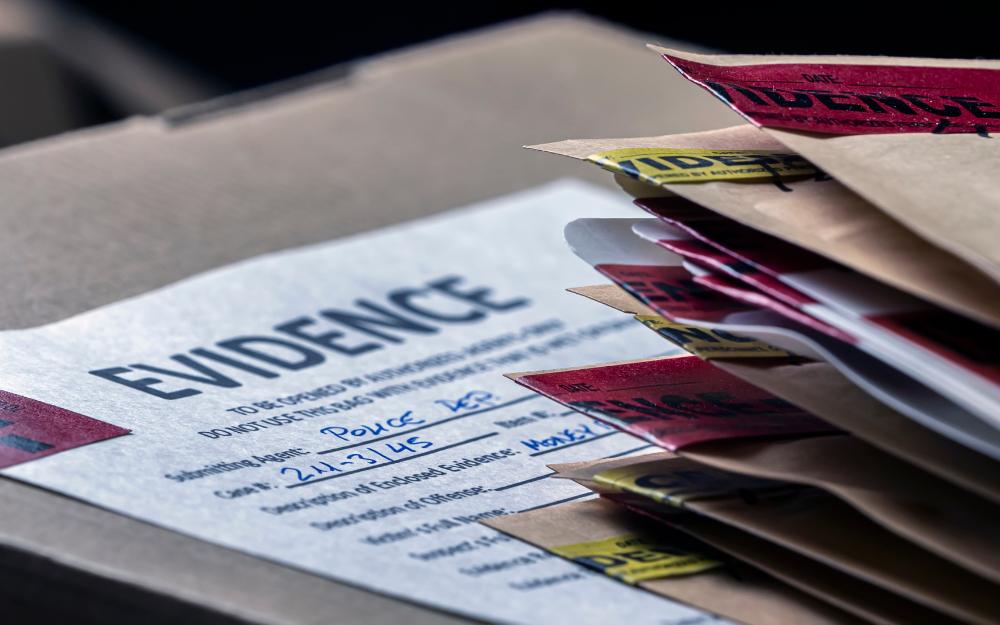Medical evidence plays a crucial role in the success of a workers’ compensation claim in New South Wales. Whether you’ve been injured in a car accident, at work, or due to someone else’s negligence, having strong medical evidence is essential for proving the extent of your injuries and securing the compensation you deserve.
This article will explain how to obtain and present medical records, reports, and expert testimony to strengthen a compensation claim.
Why is Medical Evidence So Important?
Medical evidence serves as the foundation of any compensation claim. It provides objective proof of your injuries, the severity of those injuries, and the impact they’ve had on your life. Without solid medical evidence, it can be challenging to convince insurers or the courts that you’ve suffered genuine harm and deserve compensation.
Medical evidence is crucial for:
- Establishing the causal link between the accident or incident and your injuries
- Demonstrating the extent of your injuries and the impact on your daily life
- Justifying the need for ongoing medical treatment and rehabilitation
- Supporting your claim for lost wages and future economic loss
- Proving the impact of your injuries on your quality of life and ability to enjoy activities
Types of Medical Evidence
There are several types of medical evidence that can be used to support a compensation claim in New South Wales:
- Medical records: These encompass hospital records, ambulance reports, and documentation from treating doctors, physiotherapists, and other healthcare providers. Also, these records detail the injuries sustained, treatments administered, and your recovery journey.
- Medical certificates: Legally qualified medical practitioners must submit a certificate of capacity with a claim for workers’ compensation. These certificates outline your injuries, your capacity for work, and any recommended treatment.
- Diagnostic tests: Results from tests such as X-rays, CT scans, MRIs, and blood tests can provide objective evidence of your injuries and help rule out other potential causes.
- Independent medical examinations (IMEs): An IME is an evaluation conducted by an expert medical professional who is independent of the parties involved in the claim. The purpose of an IME is to provide an unbiased assessment of your injuries, your treatment needs, and your prognosis for recovery.
- Expert testimony: In these contexts, an expert testimony provides specialized medical knowledge and opinions that are crucial in supporting or refuting claims, assisting in fair adjudication, and ensuring that compensation accurately reflects the extent of injury or impairment suffered by the claimant.
When is Expert Testimony Needed?
Expert testimony may be needed as medical evidence in a compensation claim under various circumstances:
- Complex Medical Issues: When the medical aspects of the claim involve complex conditions, treatments, or outcomes that require specialized knowledge beyond what a general practitioner or treating physician can provide.
- Causation Determination: To establish a clear link between the injury or condition and the incident for which compensation is being sought. This is particularly important in cases where causation is disputed or not straightforward.
- Assessment of Permanent Impairment: When there is a need to evaluate the extent of permanent impairment resulting from the injury or condition. Expert testimony can provide a detailed assessment based on medical guidelines and standards.
- Treatment and Prognosis: To assess the appropriateness of medical treatments received or proposed for the injury or condition, and to provide insights into the expected prognosis and future medical needs of the claimant.
- Impact on Functional Capacity: When there is a need to understand how the injury or condition impacts the claimant’s ability to perform daily activities, work, or other aspects of life. Expert testimony can help quantify these impacts objectively.
- Dispute Resolution: In cases where there are disagreements or disputes regarding the medical evidence presented by treating physicians or other experts involved in the case.
When presenting your medical evidence, it is crucial to ensure that the information is comprehensive, accurate, and directly relevant to your compensation claim. Our team of compensation law specialists at Gajic Lawyers can assist you in gathering and organizing the necessary documentation, as well as in arranging for the appropriate expert testimony to be provided.
Do I Need an IME?
In New South Wales an Independent Medical Examination (IME) may be required in compensation claims for several reasons:
- Medical Assessment Dispute: When there is a disagreement or uncertainty regarding medical assessments provided by treating doctors or specialists.
- Assessment of Permanent Impairment: To determine the degree of permanent impairment resulting from an injury or condition, which is crucial for calculating compensation entitlements.
- Resolution of Claim Issues: When there are unresolved issues or disputes related to the claim, including the extent of injury, treatment required, or ongoing impact on the individual’s life and work.
- Verification of Medical Information: If the information provided by the treating doctor is incomplete, inconsistent, or requires clarification to make informed decisions about the claim.
- Legal Requirement: Sometimes, an IME may be requested by legal representatives to obtain an independent assessment of the medical condition to ensure fair entitlements and benefits for the claimant.
In these situations, an IME provides an impartial assessment by a qualified medical professional to assist in clarifying medical facts and resolving disputes in compensation claims.
The Process of Obtaining an IME
If you’ve been injured and are considering making a compensation claim, your lawyer may recommend that you undergo an IME. The process typically involves the following steps:
- Choosing an independent medical examiner: Your lawyer or the insurer will select a medical expert who has relevant expertise in the type of injury or illness you’ve sustained.
- Examination and evaluation: The medical examiner will perform a thorough assessment, which may involve a physical examination, a review of your medical records, and inquiries regarding the impact of the injury on your daily activities.
- Report preparation: The medical examiner will prepare a detailed report outlining their findings, including their opinion on the nature and extent of your injuries, the causal relationship between the accident and your injuries, your need for ongoing treatment, and your prognosis for recovery.
- Use of the report: The IME report can be used to support your compensation claim by providing an objective assessment of your injuries and their impact. The report may be submitted to the insurer or the court as evidence.
The Importance of Cooperating with the IME Process
It’s important to note that attending an IME is a legal requirement if you’ve initiated a compensation claim. Failure to attend an IME or to cooperate fully with the process can have serious consequences for your claim, including potential dismissal.
When attending an IME, it’s crucial to be honest and forthcoming with the medical examiner. Provide accurate information about your injuries, your symptoms, and how the accident has affected your life. Be prepared to answer questions about your medical history, your current treatment, and your goals for recovery.
Remember, the IME is not a confidential consultation. The medical examiner is required to provide their findings to the insurer or the court, and anything you say during the examination may be used as evidence in your claim.
The Role of Your Treating Doctors
While an IME provides an independent assessment of your injuries, your treating doctors also play a vital role in supporting your compensation claim. Your treating doctors are responsible for:
- Diagnosing and treating your injuries
- Documenting your progress and recovery
- Providing evidence of the impact of your injuries on your ability to work and engage in daily activities
- Recommending ongoing treatment and rehabilitation
It’s important to keep your treating doctors informed about your compensation claim and to follow their advice regarding treatment and rehabilitation. Failure to do so can weaken your claim and make it more difficult to secure the compensation you deserve.
Conclusion
Medical evidence is essential for the success of any compensation claim in New South Wales. By obtaining strong medical evidence, including medical records, diagnostic tests, and an independent medical examination, you can demonstrate the extent of your injuries and the impact they’ve had on your life.
If you’ve been injured and are considering making a compensation claim, it’s imperative to work with an experienced compensation lawyer such as ours who can guide you through the process. The process can be challenging but we will help you gather the necessary medical evidence to support your claim.
Contact our team of compensation law specialists at Gajic Lawyers to increase your chances of securing the compensation you deserve.







